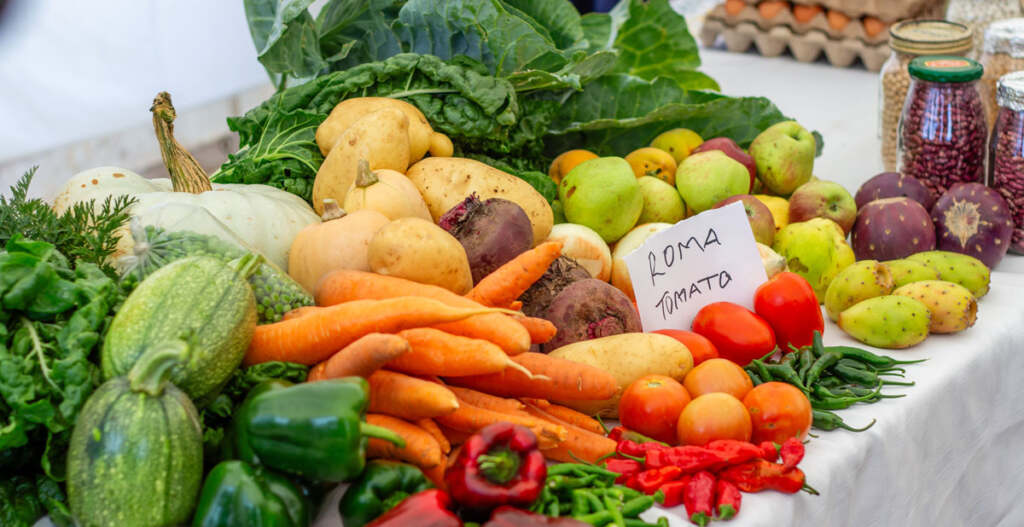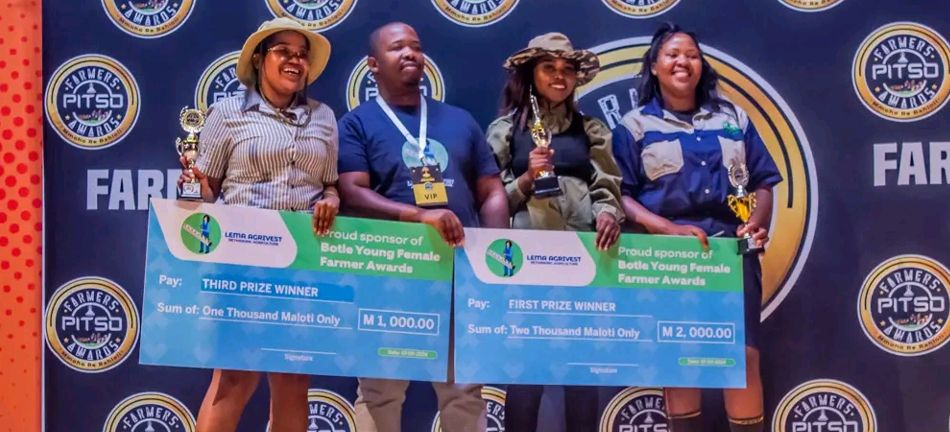Ntsoaki Motaung
A local farmer Matsike Ralebakeng said when he started his business he was only able to produce 140 boxes of tomatoes weekly but now his agricultural productivity has more than doubled.
Ralebakeng whose farm, Ralebakeng Farm, is based in Peka, Leribe now produces about 300 boxes of tomatoes weekly.
The farm, established in 2016, produces tomato, pepper, butternut, and watermelons, among others.
“We started with only one plastic tunnel, 5,000 liters tank, and one pressure pump,†Ralebakeng said.
He agricultural productivity more than doubled after he got assistance from Smallholder Agriculture Development Project (SADP) which is funded by the International Fund for Agricultural Development (IFAD).
IFAD is an international financial institution and a specialised agency of the United Nations (UN) that works to address poverty and hunger in rural areas of developing countries.
“We only came across SADP in 2018 and it helped us with shade nets and three water tanks, two of which have a capacity of 10,000 liters while the other one is 5,000 liters,†he said.
“Our price for a box of tomatoes differs according to the changes in the markets. Sometimes we sell a box of tomatoes for about M60 and that multiplied by 300 boxes gives us about M18,000 per week. But there are times when we sell a box for M45,†he added.
SADP supports smallholder farmers to exploit opportunities to increase their productivity and diversify into market-oriented agriculture.
The project will focus on increasing agricultural market opportunities, increasing market-oriented smallholder production, and identifying commercially viable activities that can be replicated and successfully scaled up.
One of SADP II’s beneficiaries is ‘Makeletso Masena from Maputsoe in Leribe.
When the project’s administrators visited her orchard this month, Masena said she started the orchard because she wanted to have something that she could do while on retirement.
She said she also wanted to build a family legacy that will be inherited by her children and grandchildren.
She wanted the fields owned by the family to benefit them by generating revenue. She did not start big as she only invested resources that were available at that time and her grandchildren volunteered to help her work the orchard.
“I used to fetch water for irrigation with scotch cart and was assisted by my grandchildren. We would take pictures and post them on social media. That is how people knew about me and were surprised by the way I did the irrigation,†she said.
She explained that after she had harvested her fruits, she would try them naturally in the sun.
When dried, she would sell the fruits at the bus stop area in town but could not get many customers because her product was of less quality.
“It was not easy at all to sell at the bus stop area. This is because people who had already been selling their products there do not really welcome new street vendors well because they think one is going to take their customers or business. My time at the bus stop was not nice and the money I used to make there was not enough,†she explained.
SADP I then assisted her with a drying machine while SADP II assisted with a borehole.
She said before SADP could help her, she used to sell a packet of dried fruits for at least M10.
After she had a drying machine, she sold a packet for M30.
“I have started making more money than I expected, this is because my products are now of good quality and I am able to penetrate the markets. I sell to different business in Maputsoe as well as in other towns in the country,†she said.
To date, the SADP II have already assisted 180 farmers from the ten districts of Lesotho and already M29 million has been used.
Summary
- IFAD is an international financial institution and a specialised agency of the United Nations (UN) that works to address poverty and hunger in rural areas of developing countries.
- “We only came across SADP in 2018 and it helped us with shade nets and three water tanks, two of which have a capacity of 10,000 liters while the other one is 5,000 liters,†he said.
- I sell to different business in Maputsoe as well as in other towns in the country,†she said.

Your Trusted Source for News and Insights in Lesotho!
At Newsday Media, we are passionate about delivering accurate, timely, and engaging news and multimedia content to our diverse audience. Founded with the vision of revolutionizing the media landscape in Lesotho, we have grown into a leading hybrid media company that blends traditional journalism with innovative digital platforms.







